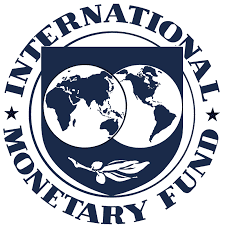 The International Monetary Fund was established towards the end of World War II with the principal aim of fostering the international economic co-operation that could avoid the disastrous economic policies that precipitated the Great Depression and (arguably) sowed the seeds for the Second World War. According to its website:
The International Monetary Fund was established towards the end of World War II with the principal aim of fostering the international economic co-operation that could avoid the disastrous economic policies that precipitated the Great Depression and (arguably) sowed the seeds for the Second World War. According to its website:
The IMF supports its membership by providing policy advice to governments and central banks based on analysis of economic trends and cross-country experiences; research, statistics, forecasts, and analysis based on tracking of global, regional, and individual economies and markets; loans to help countries overcome economic difficulties; concessional loans to help fight poverty in developing countries; and technical assistance and training to help countries improve the management of their economies.
And to provide a forum for cooperation on international monetary problems facilitate the growth of international trade, thus promoting job creation, economic growth, and poverty reduction; promote exchange rate stability and an open system of international payments; and lend countries foreign exchange when needed, on a temporary basis and under adequate safeguards, to help them address balance of payments problems.
The IMF has appointed a replacement for its out-going director, Christine Lagarde, who is shortly to take up the presidency of the European Central Bank. The new director, its second successive female head, is a Bulgarian citizen, Kristalina Georgieva an economist who was chief executive of the World Bank. She becomes the first person from an emerging economy to lead the IMF and was the only candidate nominated for the role.
Ms Georgieva has also worked in senior roles within the European Commission, serving as the commissioner responsible for the EU budget before moving to her role at the World Bank.
She said the IMF's long-term aim was to support sound monetary, fiscal and structural policies to build stronger economies and improve people's lives.
Describing herself as "a firm believer in its mandate to help ensure the stability of the global economic and financial system through international co-operation", she noted that: "It is a huge responsibility to be at the helm of the IMF at a time when global economic growth continues to disappoint, trade tensions persist, and debt is at historically high levels."
Ms Georgieva said the IMF aimed to support sound fiscal, monetary and structural policies in order to improve people’s lives and build stronger national economies.
"This means also dealing with issues like inequalities, climate risks and rapid technological change. My goal is to further strengthen the Fund by making it even more forward-looking and attentive to the needs of our members," she said.
